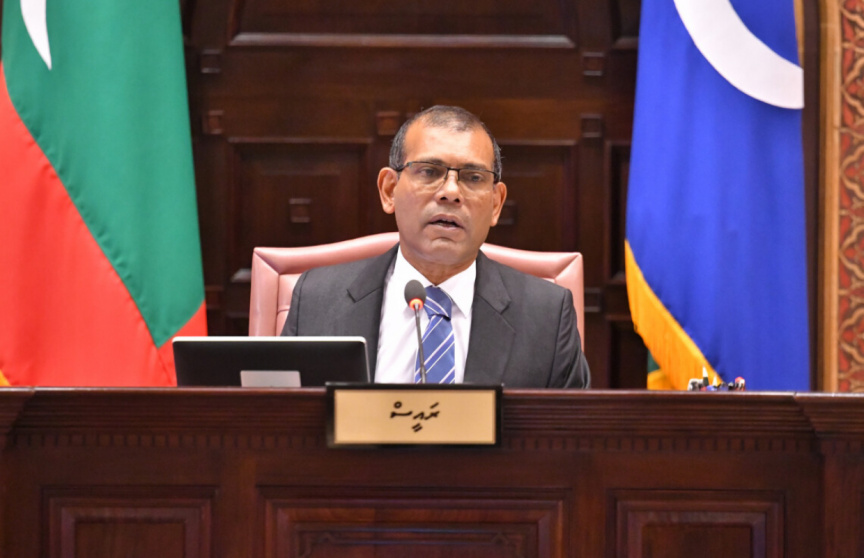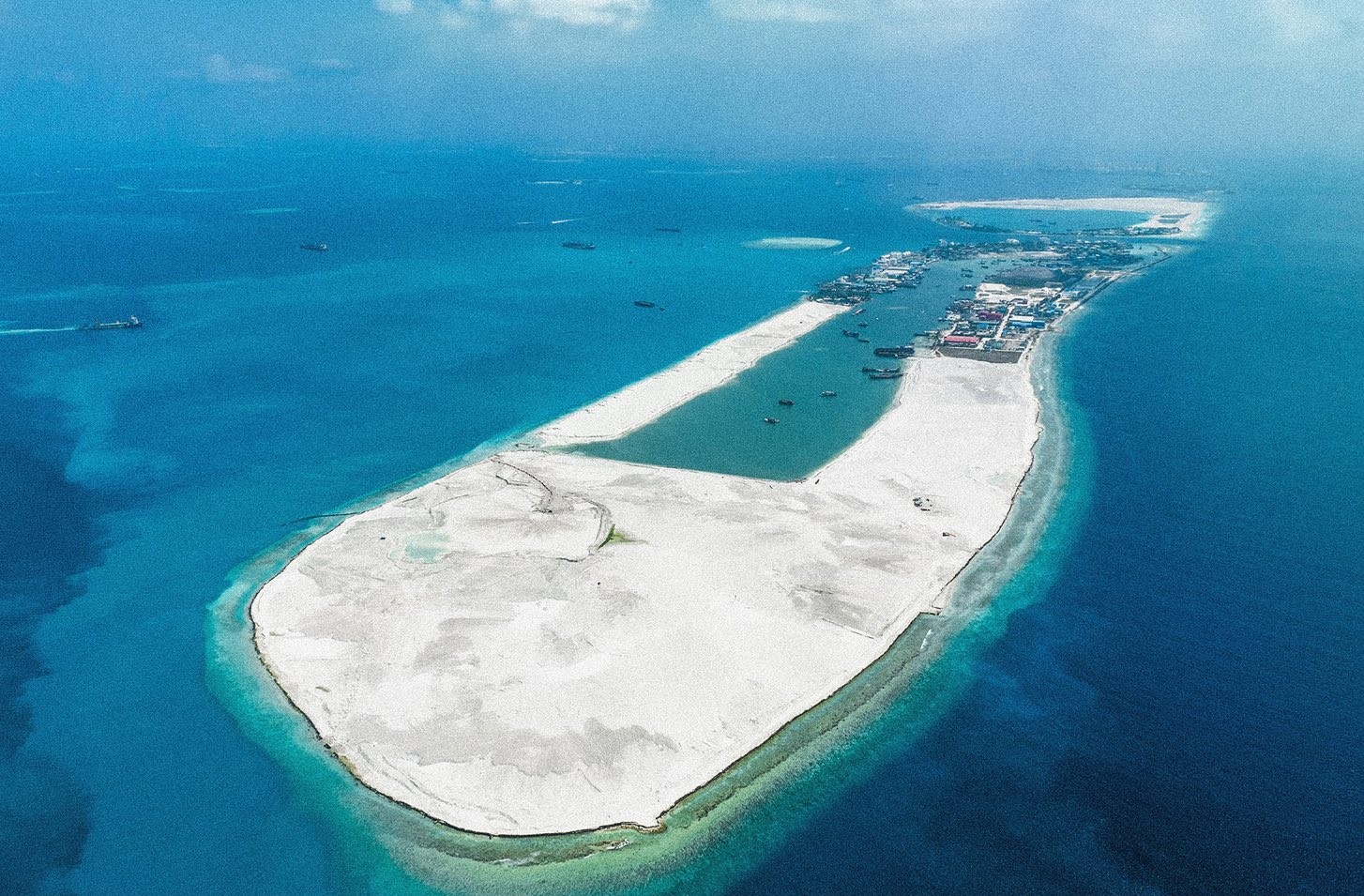The Parliament’s presidency has rejected the no-confidence motion submitted against Speaker Mohamed Nasheed, instructing the Maldivian Democratic Party (MDP) to resubmit the motion.
At Sunday’s sitting, chaired by Vilufushi MP Hassan Afeef, lawmakers from the Democrats questioned the legitimacy of the motion.
They argued that it did not fit the standards for a motion.
Democrats’ parliamentary group leader Ali Azim raised a point of order over this issue as soon as the sitting began.
The minority leader said it wasn’t clear whether the submission was “a bill, an issue, a motion, or an emergency motion.”
He demanded that the presidency clear the matter.
Afeef, himself a member of Democrats, said it was a motion to dismiss Nasheed. He said it wasn’t scheduled by the Parliament’s presidency.
The Democrats then alleged that the motion was scheduled in violation of the Parliament’s Standing Orders, and cannot be accepted to the floor.
Azim argued that the motion must fit the standards for one as declared on the Standing Orders, and said that the MDP needed to re-submit it after necessary amendments.
This drew immediate outrage from MDP lawmakers, who argued that Afeef shouldn’t not be allowed to chair the sitting, given he is a member of Democrats.
Addu Meedhoo MP Rozaina Adam demanded that Afeef recuse himself.
She also noted that the Parliament had already given a 14-day notice to schedule the motion as required.
“Why are you thwarting this? Why are you so scared of a vote?” she said.
Addu Maradhoo MP Adam Shareef said that Afeef had a clear conflict of interest.
He accused Afeef of deliberately sabotaging the motion.
Afeef responded that all members of the Parliament had a conflict of interest in the motion against Nasheed.
He decided to accept Azim’s point of order.
“Article 205 of the Parliament’s Standing Orders stipulate that no-confidence motions must be chaired by Deputy Speaker. But that is not what the Supreme Court decided. Other provisions also apply to this,” he said.
“I accept the point of order raised by the honorable Central Henveiru MP. This motion wasn’t submitted in accordance with the Parliament’s Standing Orders. So, this motion must be resubmitted. This is the end of this,” he said, as he adjourned the sitting – the sixth sitting where the motion was scheduled, but thwarted.
The Supreme Court ruled on Thursday that the decision of the Parliament’s secretariat to halt the motion because of Eva’s unavailability was unconstitutional.
Shortly after the judgement, Nasheed sent a text to the Parliament’s Whatsapp group saying that the court case had thwarted the motion for five days, and that he believes he can continue to stall it until after President-elect Dr. Mohamed Muizzu takes office on November 17.
Source(s): sun.mv

 Sports3 days ago
Sports3 days ago
 Sports6 days ago
Sports6 days ago
 World7 days ago
World7 days ago
 News5 days ago
News5 days ago
 World6 days ago
World6 days ago
 News7 days ago
News7 days ago
 Travel & Culture7 days ago
Travel & Culture7 days ago
 News5 days ago
News5 days ago
























